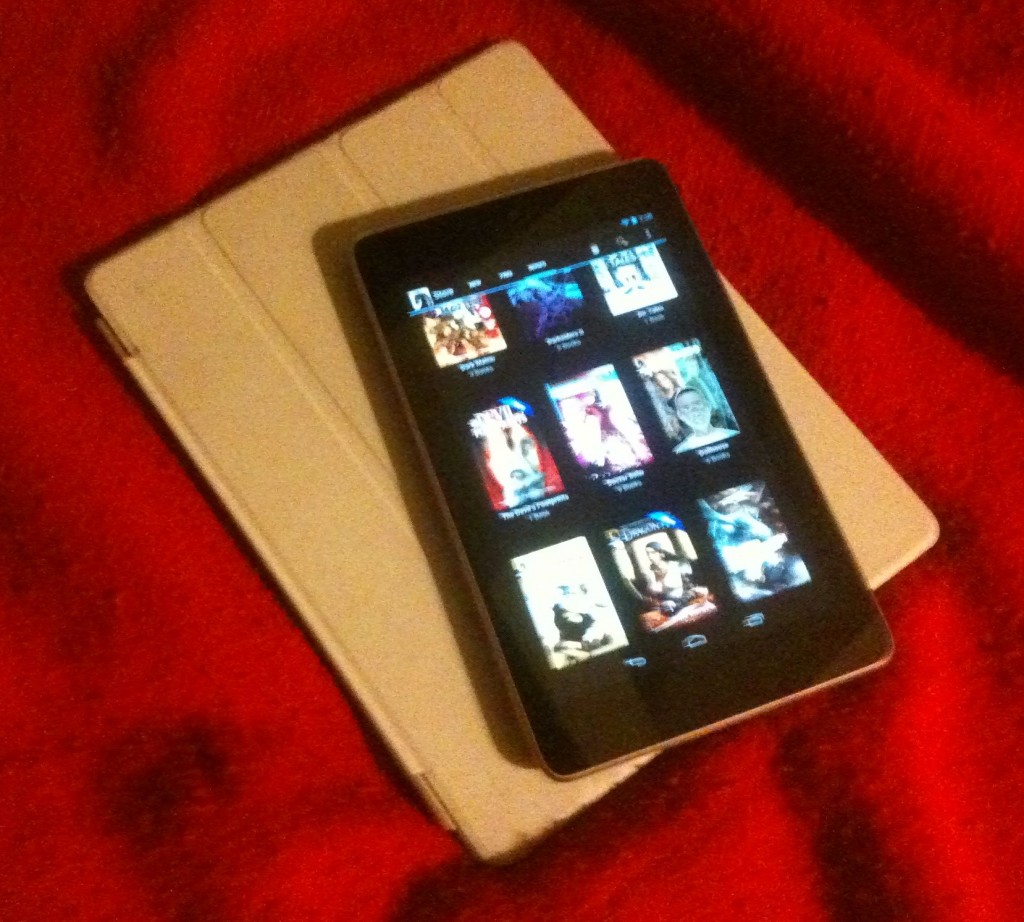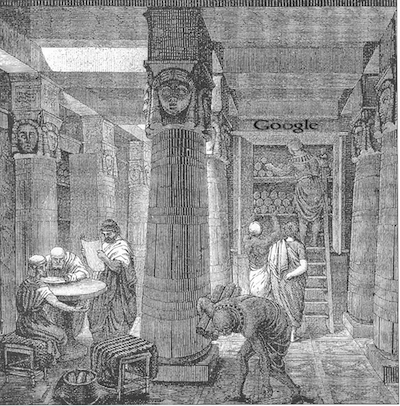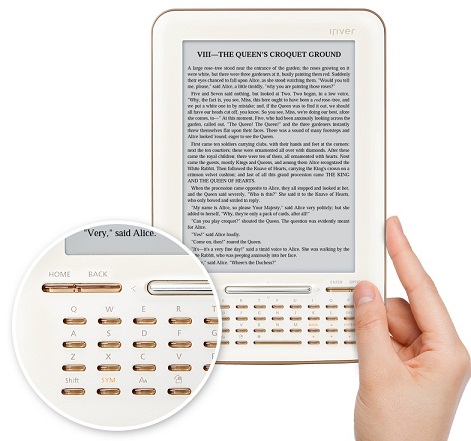 My Nexus 7 arrived yesterday and after a night setting up and playing with it, here are some first impressions of Google’s 7 inch tablet. First off, it feels pretty good in my hands. It’s solid, but doesn’t have the dense heavy feel that my wife’s Nook Color has. And its compact size is perfect for the use I have in mind for it. I decided to get a Nexus 7 as a replacement for my eInk Kindle and Nook readers. Don’t get me wrong, I still love my eReaders, but they aren’t that useful for me on the road where they often cannot take advantage of the nearly ubiquitous free Wi-Fi at shops and cafes. My new Nexus should have no problems with wireless connections anywhere I shop or eat lunch. Additionally, I’ll be able to read my eBooks, comics, and digital manga on it regardless of whether I bought it from Amazon or Barnes & Noble. I could do this with my iPad too, but it is simply too big for my daily load out.
My Nexus 7 arrived yesterday and after a night setting up and playing with it, here are some first impressions of Google’s 7 inch tablet. First off, it feels pretty good in my hands. It’s solid, but doesn’t have the dense heavy feel that my wife’s Nook Color has. And its compact size is perfect for the use I have in mind for it. I decided to get a Nexus 7 as a replacement for my eInk Kindle and Nook readers. Don’t get me wrong, I still love my eReaders, but they aren’t that useful for me on the road where they often cannot take advantage of the nearly ubiquitous free Wi-Fi at shops and cafes. My new Nexus should have no problems with wireless connections anywhere I shop or eat lunch. Additionally, I’ll be able to read my eBooks, comics, and digital manga on it regardless of whether I bought it from Amazon or Barnes & Noble. I could do this with my iPad too, but it is simply too big for my daily load out.
So how does the Nexus 7 compare to my iPad? In a word, it’s okay. A frequent iPad user will immediately notice the lack of finger tip real estate the 7 inch form factor brings and typing on the smaller screen is a bit of a pain. I didn’t realize just how much I depended on having the keys on the onscreen keyboard jump up at me as I typed. So it’s taken a bit of getting used to. An iPad user will also have to get used to the Android way of doing things. Apple’s lawsuits not withstanding, Android and iOS offer significantly different user experiences. Which you prefer is a matter of personal taste as either will get you where you want to go.
Another thing I noticed was that the Nexus seems a hair slower than my iPad. The interface responds fast enough, but I felt a little sluggishness using the apps. Now in fairness, this is just a first impression and I had a lot of stuff open as the night went on. That said, I like my Nexus. I spent a lot of time in the reader apps from Amazon, Barnes & Noble, and Viz. From text to manga, it was a pleasure using the Nexus 7 to read my books and comics. This is why I bought the Nexus, to have all of my books, manuals, and graphic novels in one convenient, network connected, and portable package. Plus, I now have my own Android reference hardware for my Android development projects. Amazon and Barnes & Noble make some nice 7 inch tablets too, but the one from Google is pure Android, which is what I want for development.
So on the whole, I’m liking my Nexus 7. It’s not an iPad, but I don’t need it to be.

